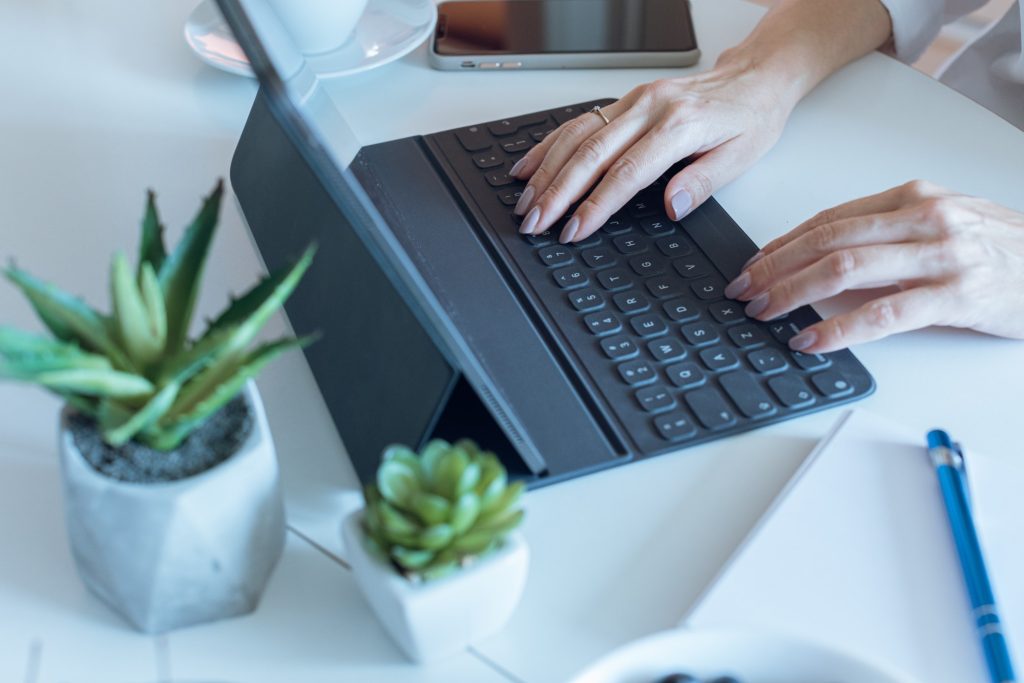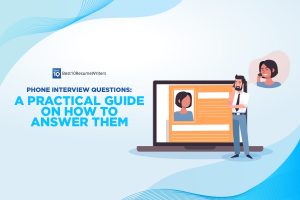Job searching can be a stressful experience. You finally have a job interview set after months of applying—and you want to make the best first impression possible. Hence, it would be beneficial to have an interview checklist to stay organized and confident during the hiring process.
Read on to learn the best techniques to ace that job interview, along with some pointers on how to improve your chances of getting hired.
Why Have an Interview Checklist?
What you must do during the interview is outlined in an interview checklist. It can be nerve-racking for all parties concerned, especially the candidate. When you’re nervous, things don’t always go as planned. This explains why an interview checklist can help you stay on track throughout the hiring process.
The checklist includes both mental and physical preparations for interview questions. Above all, an interview checklist can address issues you may have prior to the interview, boosting your general confidence.

Before the Interview
1. Spend some time researching the company.
Check their websites, social media page, and any other information you can find online. This will provide you with additional information about what and who they are, while also helping you with questions you may have. With this, you can show your enthusiasm for the position during the actual interview.
Moreover, advance research helps you grasp the company’s values, vision, and accomplishments, while details on their social media channels can provide insight into the culture and consumer brand. Remember: You will make a bigger impression if you know more about them than what they expect.
2. Review the job description, then research and analyze the role.
Review the job description as part of your interview preparation. What skills are they looking for? Do your qualifications and experience stack up?
As you prepare for the interview, make sure all your job search tools are up to date, from your resume to your portfolio. In line with this, your documents should highlight the qualities that set you apart as the best candidate for the job. The more closely your qualifications fit the job requirements, the greater your chances of a second-round interview and a job offer are.
3. Make a list of typical interview questions and competency-based ones.
Make a list of questions based on your expectations and the work experiences of others in similar companies and positions. You can plan your own questions based on this material to help you prepare for the interview. After all, the interviewer is likely to ask you the same or related questions.
Consider the key qualities, experience, and skills listed in the job description, and prepare at least five real-life examples to share during the interview. The competencies will vary depending on the role, but employers frequently look for the following key skills in candidates:
- Decision Making
- Problem Solving
- Organizational skills
- Leadership
- Teamwork
- Communication
- Initiative
4. Review your prepared questions and conduct a mock interview for extra practice.
Now that you’ve taken the time to write possible interview questions, you can move forward by practicing your responses to them. You may opt to practice your answers aloud in front of a mirror. This helps you be more aware of your facial expressions and gestures.
On the other hand, you can rehearse your responses with a trustworthy mentor or friend who can provide honest feedback. Doing so allows you to spot the areas you need to work on. In either case, being prepared boosts your confidence and increases your chances of acing the interview toward receiving a job offer.
And while we’re at the topic of interview questions, it’s also good to prepare questions to ask your interviewer. Asking thoughtful questions to the hiring manager shows your interest in the company. Some of the questions you may ask include:
- What are the biggest challenges in this role?
- What is your favorite part of working here?
- How would you describe the work environment here?
- Can you tell me about the team I’d be working with? What strengths does the team possess?
- What are the prospects for growth and advancement?
Related Articles: Tricks on How to Answer These 5 Tricky Job Interview Questions and Coaching Tips to Land That Dream Job—Without Having to Dread the Interview
5. Get a good meal and sleep.
Though pre-interview preparations are stressful, try to get a good sleep and fuel your energy levels for the day with a healthy breakfast. You should avoid sugary foods and drinks since they do not improve one’s mood and may even cause fatigue. Eat, relax, and sleep well to prepare for the interview. Your mind should be alert and prepared to respond to the questions. Practicing some breathing techniques and meditation will also help you relax and feel at ease.

Interview Day
6. Prepare all the important documents.
Take any materials you believe will help you “sell” yourself to a hiring manager. Plan and expect everything ahead of time so that no IDs, files, portfolios, or resumes are forgotten. Even if you’ve already submitted these pieces of information, some companies may request for them again. Therefore, be sure you have everything you need ready before you go.
7. Dress professionally and appropriately.
The way you dress for a job interview tells potential employers a lot about you. If possible, look into the company’s dress code to grasp the culture they embody. Nevertheless, business casual in gray, tan, black, or navy is usually a safe bet. Dress smartly and professionally for your interview. As a general rule: Aim to dress one level above your usual work attire.
8. Be punctual.
Any interview checklist isn’t complete without the reminder to be punctual at all times. Arriving late for an interview can leave a bad first impression. Always arrive 10 to 20 minutes early and never be late. Consider the best mode of transportation to use and request a ride from a parent or a friend.
9. Be aware of your body language and be your best self.
Maintain eye contact with your interviewer throughout the interview. Remember to shake hands, observe proper posture to avoid appearing tense or timid. Do not slouch or lean on the desk—it may give the impression that you are uninterested. Avoid fidgeting and fiddling with things such as your jewelry or pen.
If you actively engage yourself in the interview, it shows that you are eager and enthusiastic about the possibility of a new job. Keep in mind that companies hire people who exude both confidence and competence.
Related Article: Making a Good First Impression with Your Body Language during a Job Interview
10. Respond clearly, concisely, and truthfully to their questions.
Getting to know you is an essential part of job interviews. This stage will include questions about your work history, skills, and personal traits. Be ready to discuss these topics. Listen attentively to the questions and avoid speaking too quickly. Pause before responding, especially when asked tough questions. Don’t worry; it is preferable to take a moment to compose your response rather than responding quickly.
Also, avoid speaking negatively about your previous employers. Instead, focus on your strengths and why your background makes you uniquely qualified. The goal of the interview is to differentiate yourself from other applicants for the position, so highlight the major ways through which you positively influenced others and the measurable results you achieved.
11. Bring a notebook to the interview.
Make a note of how your interview went so you may learn from it. List down parts you think you aced or missed during or right after your interview. Make a list of everything you remember about the interview questions, and practice answering the ones you struggled with. These will be a useful tool in helping you prepare for future interviews.

After the Interview
12. Shake the interviewer’s hand to conclude the interview.
To conclude the interview, shake the interviewer’s hand. Recognize that by asking questions, you have taken up their time. This simple gesture might not mean much, but it speaks volumes that you value the time they have taken to meet with you. Following your interview, ask your interviewer about the timeline of the hiring process and what you should expect next.
13. Follow up with a thank-you letter.
In your follow-up email, express how much you enjoyed meeting with the interviewer and that you’re still available for questions that the interview might not have covered. Always send a thank-you note after an interview.
Why is this important? According to a survey, in every 5 hiring managers, 1 ends up dismissing a job applicant if they didn’t receive interview thank-you notes. Thus, doing so can help you stand out from other candidates, as your thoughtful way to express your gratitude for the interviewer’s time and consideration.
Preparation is important for a successful job interview, whether you’re a first-time job seeker or an experienced one. It can make or break your interview experience. If you use this interview preparation checklist, you’ll feel more prepared and confident about your next interview or check our resume help section for more interview preparation and coaching tips.
Need Help in Writing a Thank-You Letter?
Writing a thank-you letter is easy, and you won’t have to think much about it. Simply ensure that the tone is courteous and genuine. It should, however, be worded professionally. If you’re still on the fence about hiring a professional writer to guarantee that your letter is well written is recommended; we have listed the 10 best resume writing services to assist you with your job search.
Just as a strong resume won you the interview, following these job interview dos and don’ts can also help you win the job. Keep in mind of this job interview checklist and you’re ready to go. For more job search tips, you may browse through our resume help page.
Next Article: How to Decline a Job Offer and Tips to Navigate Multiple Job Calls





